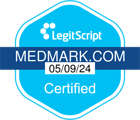
It’s not that drug courts don’t try to help people. They do try, and they help many people. But considering the numbers of people who die despite taking advantage of addiction treatment in Georgia, the drug court there isn’t doing much.
Elaine Pawlowski blogging for The Huffington Post isn’t writing specifically about addiction treatment in Georgia, but about the problems with drug court in general. She believes they are an “innovation” that make public officials feel good because they have thrown money at a problem that affects 8 to 10 percent of the people over the age of 12 in this country.
People who regulate addiction treatment in Georgia are proud of the drug courts, because they believe that they saves lives—and they work, right? Well, not always. According to Pawlowski, while the number of drug courts has increased throughout the country, the number of people who are overdosing also has increased. One of the problems, she tells us, is that people don’t understand their function. We hear from county government officials that the drug court provides treatment. But people mistakenly assume the officials are referring to some kind of medical treatment.
Drug courts, however, do not operate with medical directors and nurses running through the hallways providing some kind of palliative care for people seeking addiction treatment. In Georgia, there aren’t even any standards at all for drug court. In Kentucky, journalists focused on the life and death of a young man with a heroin addiction who died despite drug court intervention. Each state with drug courts has its own stories of those that have failed.
Drug Court Success in Georgia
There is a National Association of Drug Court Professionals (NADCP). The NADCP staff work hard to collect statistics, and they boast with pride that the drug courts have ended addictions and kept people as functioning members of society rather than letting them be tossed into jail and possibly into a lifetime of addiction.
But the statistics in Georgia, unfortunately, aren’t very promising. The Fulton County drug court in Georgia kicked out twice as many participants as it actually treated. It’s not that Georgia legislators haven’t tried to put some pride and dedication into their drug courts. As far back as 1999, the Georgia House of Representatives passed a resolution recognizing a week in June as National Drug Court Week. The resolution praised the work of the drug courts for reducing drug use and associated criminal activity. But the fact is that addiction treatment in Georgia goes on haplessly, because 17 years later, there are still no standards for drug courts overseeing the treatment.
No Methadone Allowed
MAT programs are identified by the Substance Abuse and Mental Health Services Administration (SAMHSA) as well as the National Institute on Drug Abuse (NIDA) as the single best way to fight opiate addiction. Nevertheless, drug courts across the country almost unilaterally forbid their clients to participate in such programs. Judges and probation officers alike require their clients to get clean or get to jail. News stories abound of the revolving door of clients in drug court because of opiate addiction. Forced to quit methadone, they relapse, are thrown in jail, released on bond, and relapse again.
Pawlowski tells us about efforts by the Legal Action Center to fight drug courts that ban methadone programs. The Legal Action Center, which describes itself as the only non-profit law and policy organization in the country that fights discrimination against people with addictions, has asked people from drug court in 13 states to come forward with their stories.
For people who do not live in those states, including those seeking addiction treatment in Georgia, LAC offers an informational guide that the person or their lawyer can utilize to petition for access to methadone treatment while also participating in a drug court. This document quotes the heads of government regulatory agencies that support the use of methadone, cites an effective cost-benefit ratio of $38 for every dollar spent, and brings home the dire truth that only 10 percent of the 23 million addicted Americans ever get help.
Georgia, Pay Attention
For the states with no clear policies governing their drug courts, including those that process people for addiction treatment in Georgia, the LAC offers the following policy recommendations:
- The people who create policy should make it their business to require that insurance companies will pay for methadone and buprenorphine. Vivitrol should also be approved, which is a once-per-month injectable medication not yet in widespread use.
- Put teeth in the Mental Health Parity law by forcing private and federal insurance companies as well as state’s attorney general to recognize the effectiveness of methadone and buprenorphine so that the law will apply to medication-assisted treatment and not just abstinence-based therapies that are generally less successful for those battling opiate addiction. LAC feels it should be illegal for an insurance company to cover residential treatment but not methadone treatment, since the former is a much more restrictive level of care.
- Educate health care officials and drug court judges alike. Public officials of all types would benefit from thorough education about the disease model of addiction plus “the nature, application, and implementation of MAT services.”
- Allow people in the drug court system to choose. As long as they participate in the drug court system, their choice of a legitimate therapy should be respected.
- Let CARA work. With the recent passage of the Comprehensive Addiction and Recovery Act, let’s hope that communities will expand the availability of MAT programs, even into the prisons. Previously, a judge would require a client to discontinue methadone because if the person were jailed the methadone would not be available there. But with the widespread use of buprenorphine, it’s time to kick that old excuse to the side.
If you’re seeking addiction treatment in Georgia, visit the LAC site and print out the document referenced here. Take it to your lawyer. But first, take yourself to a local MAT program. Talk with the counselors to find out about the program’s relationship with the local drug court. Get started on treatment—because saving your life is your first priority.



